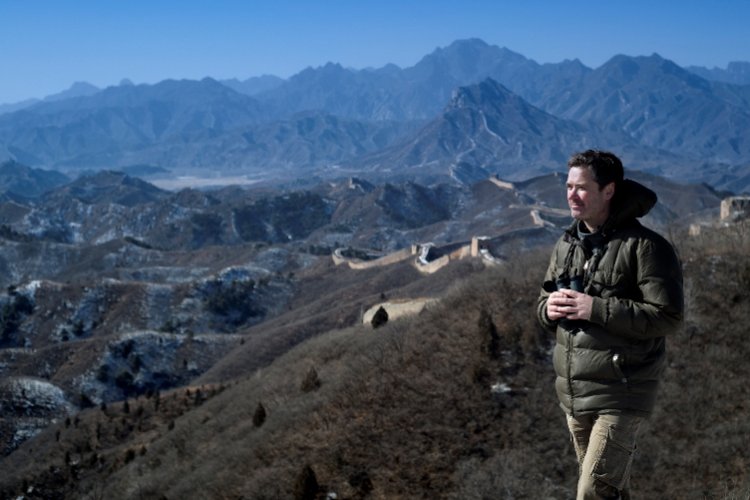Ecology: Squeaky Clean Gutter Oil?
A notorious Chinese sludge is slowly becoming a cleansing solution. Gutter oil – siphoned from grease traps, sewers and dumpsters, treated just enough to remove foul odors and colors, then labeled and sold as a discount cooking product – had been a well-kept dirty secret for hundreds of stingy restauranteurs and street vendors. Investigators have made this vile practice public in recent years, and official crackdowns have ensued.
But limited progress has been made and the refuse-laced product still oozes its way onto Chinese dinner plates and street snack trays daily. That’s the case being made by Li Li, general manager of Beijing-based eco-NGO, Envirofriends. She says authorities have been pushing restaurants to keep better inventories so that their oil purchases can easily be checked. But the risk of being caught pales in comparison to the potential savings – often up to 70 percent – the contaminated grease can represent.
Low-end eateries buy the banned crude cooking oil from manufacturers that drain it from sewers. And in that sense, victims are sullied not only with germs, but also some of the blame. That’s because average customers have also been guilty of pouring leftover household oil straight down the drain. Li says people must stop clogging their plumbing in such a fashion so that gutter oil manufacturers will lose one of their primary sources.
In order to deter average Chinese families from such irresponsible disposal, Envirofriends partnered with a Japanese NGO and Beijing’s Bayi Middle School to set up experimental cleansing systems in which people can safely dump their leftover oil. Not only does the initiative provide a lesson in environmentalism, but also, ironically, the devices turn the oil into soap.
Envirofriends’ device exposes the gutter oil to extreme temperatures that kill off its toxins before mixing it with ingredients typically used to make detergent. The new solution is then hardened into cheap bars of soap. Unfortunately, the recipe for gutter oil is still less expensive, and the end product is far more profitable.
Naomi Inoue, Environment Secretary at Beijing’s Japanese Embassy, helped arrange for the soap dispensing equipment to be distributed in Beijing. He says Lake Biwa – Japan’s largest body of freshwater, located northeast of Kyoto – was plagued by its own sewage issues in the 1960s, similar to China’s current gutter oil problem. Then, a local grassroots movement worked to end the dumping of refuse in Lake Biwa. The activists planted rape seed (the yellow petaled plant from which canola oil is derived) across the lake’s shore. The rape’s oil and the harmful household drainage were eventually recycled into soap and biodiesel in order to offset the pollutants flowing into the lake.
Those activists, now part of The Rape Blossom Project Network, are currently donating similar equipment to Envirofriends in Beijing hoping that the tide of Chinese gutter oil can be stemmed in a similar fashion.
“Back then, our sewage treatment plants weren't advanced enough, so every household’s actions directly impacted the environment,” Inoue says. Until China’s filtration systems are up to par, Inoue says, the Rape Blossom Networks’ oil cleansers could become a suitable solution.
“My hope is that every Chinese neighborhood could have one of these devices so that people can take their leftover oil there and get free soap in exchange.”
For now, Envirofriends’ project is still in its early stages. So far it has only set up cleansing devices at the NGO’s office and at Bayi School. Li says she hopes to have more operating by the end of April.
Li isn’t alone in her efforts to scrub up gutter oil’s image. Shanghai’s Tongji’s School of Automotive Studies is collaborating with car companies to make the kitchen refuse rev engines. Meanwhile, KLM Dutch Airlines has been researching ways to turn the reviled oil into jet engine biofuel.
In an email to the Beijinger, KLM spokesperson Lisette Koning wrote that her company is excited about the prospect of cleaner jet fuel derived from gutter oil and other sources, before admitting that more research is required to determine the full potential of such substances. “We know that in the long run, used cooking oil is not the solution to provide the whole airline industry with biofuel. However, together with our partners in this field, we are still in the process of discovering the possibilities.”
A recent International Business Times article was equally wary about the prospects of gutter oil laced biofuel. It pointed out that 70 percent of America’s waste cooking oil is collected and recycled into fuels, compared with a scant two percent in China.
Li has been met with even more pessimism as she approaches various Beijing eateries with her soap dispensing, gutter oil sanitizing device. She says one manager of a hugely popular Beijing restaurant (she refused to name names) told her it made little sense to swap his gutter oil for cheap soap when he could instead sell it for a hefty profit on the black market. But she hopes that ambitious projects like hers can pique the public’s interest in cleaner alternatives, and more importantly, prompt the government to take a tougher stance.
“Right now, only the big bosses have been punished. Not enough has been done to stop the routine sale of gutter oil on the streets,” Li says. “I hope that more education about this problem and tougher laws and penalties will make people take gutter oil to recycling factories or bring it to us so that turning it into soap will be better than the alternative.”
Photos: Sui
Related stories :
Comments
New comments are displayed first.Comments
![]() tomarnstein
Submitted by Guest on Thu, 04/24/2014 - 13:26 Permalink
tomarnstein
Submitted by Guest on Thu, 04/24/2014 - 13:26 Permalink
Re: Ecology: Squeaky Clean Gutter Oil?
I can assume it is because Li Li is a smart businesswoman who recognises that to name and shame a big restaurant is to rustle feathers and cause schisms that will not do her any favours as the manager of a small NGO undertaking a project that swims against the tide (of gutter oil usage). I agree that it would be nice to know though!
![]() changbrain
Submitted by Guest on Thu, 04/24/2014 - 12:39 Permalink
changbrain
Submitted by Guest on Thu, 04/24/2014 - 12:39 Permalink
Re: Ecology: Squeaky Clean Gutter Oil?
Hmmm why does Li Li refuse to name this popular Beijing restaurant whose manager thinks it more profitable to sell used gutter oil than to make it into soap?
It would be nice to know which restaurants use or sell gutter oil so that I can avoid these horrible money grubbers.
![]() dirtystreet
Submitted by Guest on Thu, 04/24/2014 - 11:53 Permalink
dirtystreet
Submitted by Guest on Thu, 04/24/2014 - 11:53 Permalink
Re: Ecology: Squeaky Clean Gutter Oil?
It's hard to convince people to get on the boat, but this could really work. Gotta smooth out the rough patches, but I would buy gutter oil soap! Really what has to happen before anything like this can even take roots, is a leveling of the classes. All people need to be able to afford clean oil before they would even think about throwing away the poopy stuff. Sounds impossible, but using gutter oil for other purposes could create better jobs, so people wouldnt have to work for less than 40 yuan a day.
Validate your mobile phone number to post comments.






